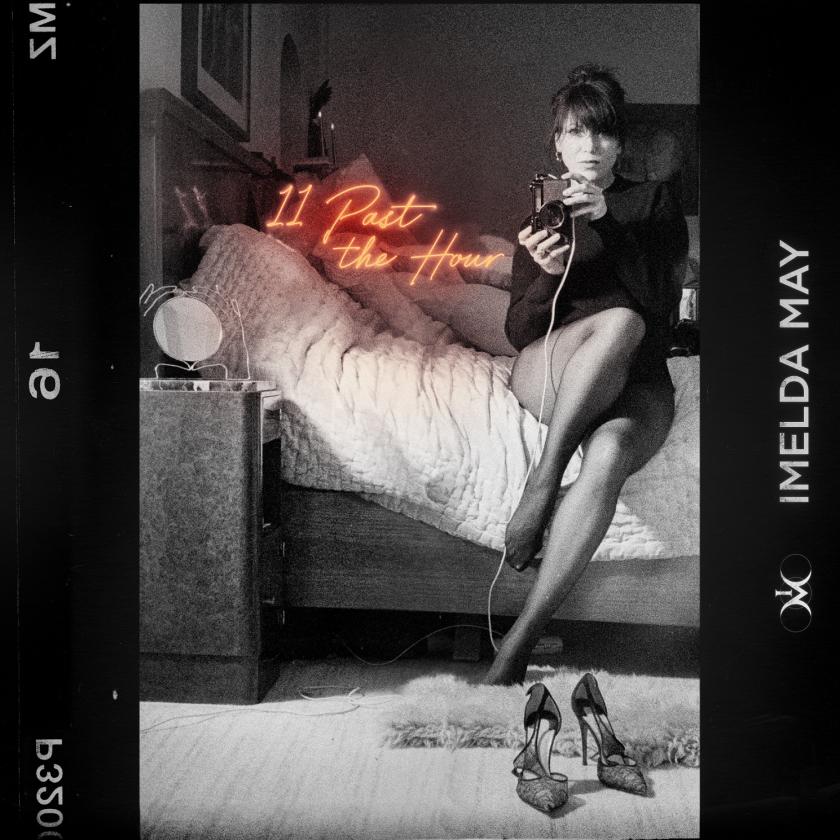11 Past the Hour opens with its title song, a delicious, twangy, string-laden Nancy Sinatra Bond theme that never was. The album closes with a lyrically empowered torch song, “Never Look Back”, which rises and rises over a marching band drum tattoo and swelling orchestration. Its enormousness is hard to argue with. Unfortunately, in between these two, Imelda May’s sixth album is a bit of a stinker.
May is a likeable, intriguing artist, also one of Ireland’s biggest recent musical success stories. She spent years building a career as a rockabilly revisionist, her visual image well-defined, topped with a blond-tinted quiff. After splitting with husband and bandmate Darrel Higham in 2015, she reappeared with a new look and a new sound. Her last album, 2017’s Life Love Flesh Blood, was an enjoyable change of direction, a swampy jazz’n’blues slow-burner, thematically exploring new-found sensuality. The aforementioned 11 Past the Hour title cut maintains this trajectory but then everything falls of a cliff.
“Made to Love” boasts the unlikely combination of Ronnie Wood and feminist activists Gina Martin and Shola Moss-Shogbamimu, but is an unpleasant MOR stadium rocker that sounds like Texas. Other comparisons along the way might include The Cranberries and Katie Melua, while the piano ballad “Diamonds” sounds like one of the more forgettable, not-“Shallow” numbers Lady Gaga sings in A Star is Born.
Everything is too tasteful, too BBC Radio 2-and-an-appearance-on-The Graham Norton Show. “Just One Kiss” is a Brit-poppy duet with Noel Gallagher, redolent of Catatonia, but hackneyed in both lyric and melody. Another duet, “What We Did in the Dark”, initially seems promising, edgier, but then Miles Kane joins in and the song’s direction becomes clear. A song by song takedown would be mean-spirited. On a more positive note, another ballad, “Solace”, does have an echoey, schmaltzy charm.
Imelda May still emanates a husky sexiness, and is vocally in fine form, but the material here is a misstep into middle-aged blandness disguised as “classic rock”. The complaint is not that she’s moved on from other, preferable musical styles, just that what’s here is unworthy of her.















Add comment